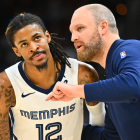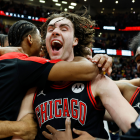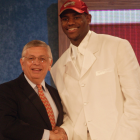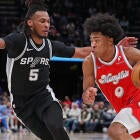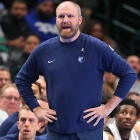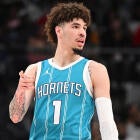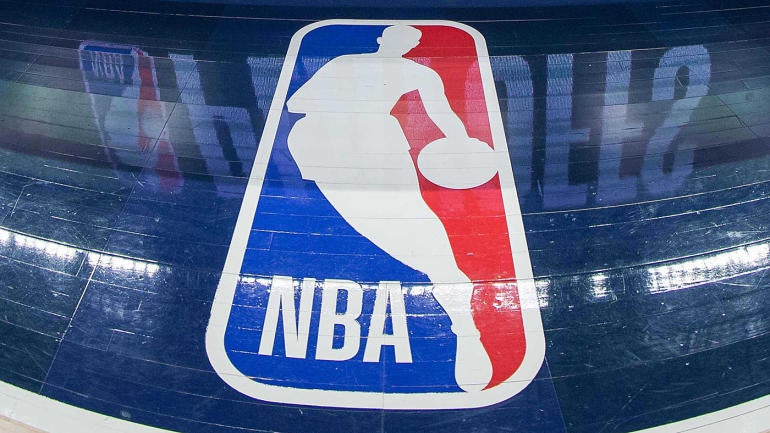
The short-term effects of the coronavirus are obvious and catastrophic, with over 100,000 people dead in the United States alone. Unfortunately, research is showing that those who manage to recover aren't out of the woods either. There are concerns about long-term damage to both the lungs and the heart, among other issues.
As the NBA continues to ramp up activity ahead of their new opening night on July 30, the question about how to monitor and care for those who have had COVID-19 is on the minds of league and team doctors. Dozens of players have tested positive, and while all have thankfully either had manageable cases or been asymptomatic, it's unclear how the virus will impact their careers moving forward.
In particular, doctors are worried about the ability of the virus to cause heart problems. Via Baxter Holmes of ESPN:
Matthew Martinez, a consulting cardiologist for the National Basketball Players Association, separately echoed that point to ESPN and said rest is key after a confirmed positive test because doctors believe that "the amount of cardiac damage can increase if you continue to exercise in the face of an active infection."
Martinez noted, "So you're somebody with a low-grade fever, and you have a little bit of symptoms. And, a week later, you're fine. Do you have cardiac involvement? Now, if you're a regular person, like me, and you're going to go do your [two to three-mile runs] every day ... that's a different discussion than if you're a professional athlete.
"So that's the reason why we worry about it that that high level of exercise intensity can increase your risk of having an adverse event when there's cardiac damage related to a virus."
Any player who tests positive for COVID-19 will be out for at least two weeks and will need to undergo a cardiac screening before being cleared to resume activity. While each case will be different, players will likely be sidelined even longer than the initial two-week period because they won't be able to train while they recover, and will then need additional time to recondition for games.
Last month, Dr. Dermot Phelan, cardiologist and Director of the Sports Cardiology Center at Atrium Health's Sanger Heart & Vascular Institute told CBS Sports, "we have data from hospitalized patients that show between seven and 33 percent of people will have some cardiac injury after getting COVID-19."
That's particularly worrisome for NBA players, especially considering some concerning recent trends:
The league and NBPA have, in general, focused more on the heart in recent years, and part of those efforts are tied to the health screenings the NBPA instituted for retired players in the wake of several notable NBA retirees dying suddenly from heart-related issues.
"Basketball players have the highest incidence of sports-related sudden cardiac death (SCD) in the United States among all athlete groups," a 2016 study by NewYork-Presbyterian Hospital/Columbia University Medical Center reported. "The most common cause of [sudden cardiac death] for American athletes is hypertrophic cardiomyopathy (HCM), a condition that results in the thickening of the wall of the left ventricle, forcing the heart to work harder with every beat."
With so much still unknown about this virus, players, teams and the league will have to be even more cautious in their approach. So far, multiple players, including Spencer Dinwiddie and Taurean Prince, have been ruled out of the restart due to their positive tests. Other players who previously had the virus, including Rudy Gobert, Marcus Smart and Nikola Jokic, will be attempting to play, however.
Hopefully, everyone will be able to stay healthy and on the court, and, if for some reason that isn't possible, at least maintain a bright outlook for their future. While winning a championship would be awesome, getting out of the bubble safe and sound is the primary goal for the next few months.
![[object Object] Logo](https://sportshub.cbsistatic.com/i/2020/04/22/e9ceb731-8b3f-4c60-98fe-090ab66a2997/screen-shot-2020-04-22-at-11-04-56-am.png)










